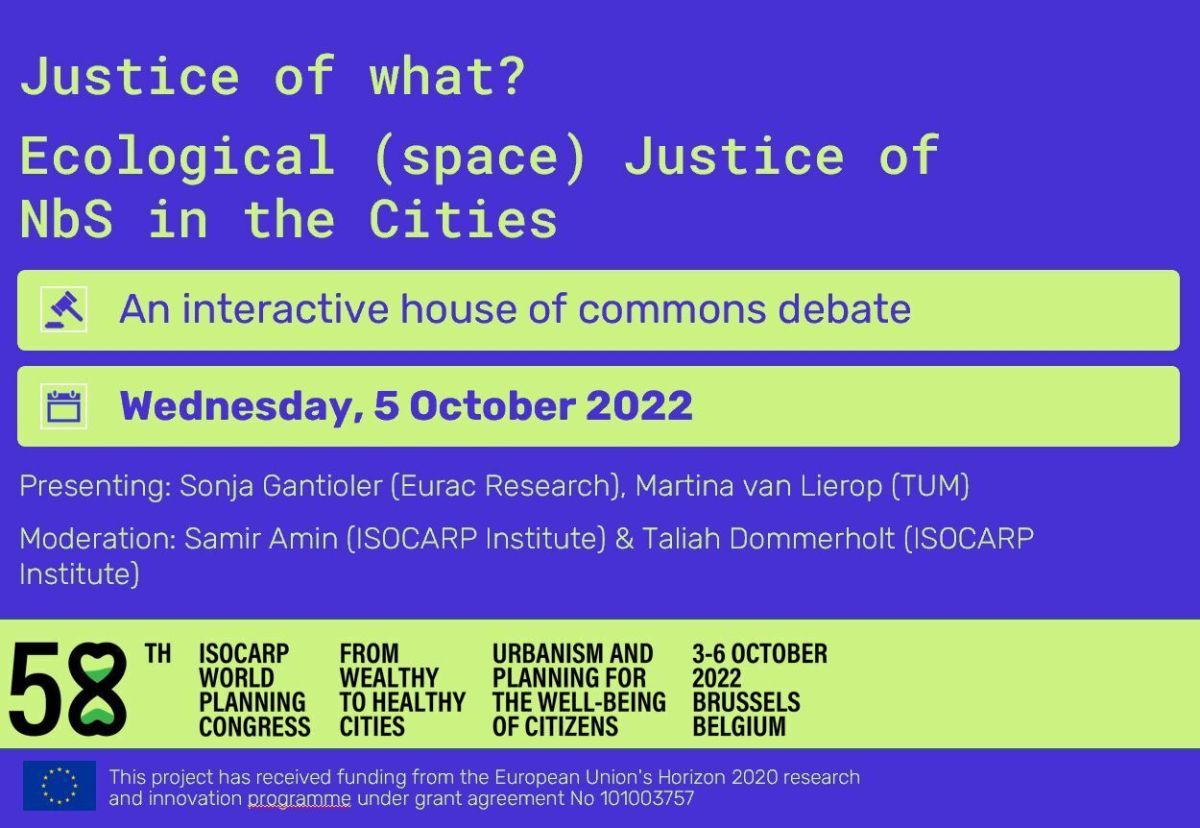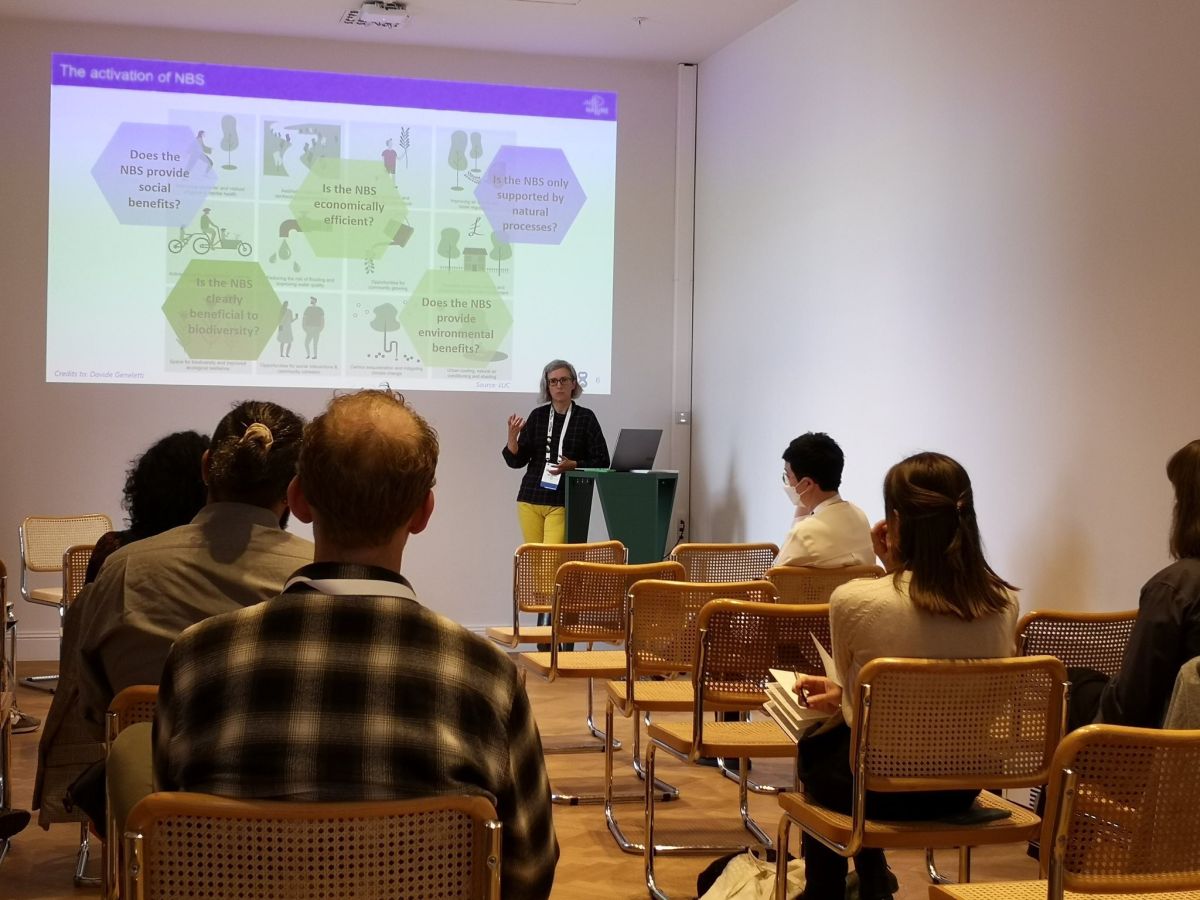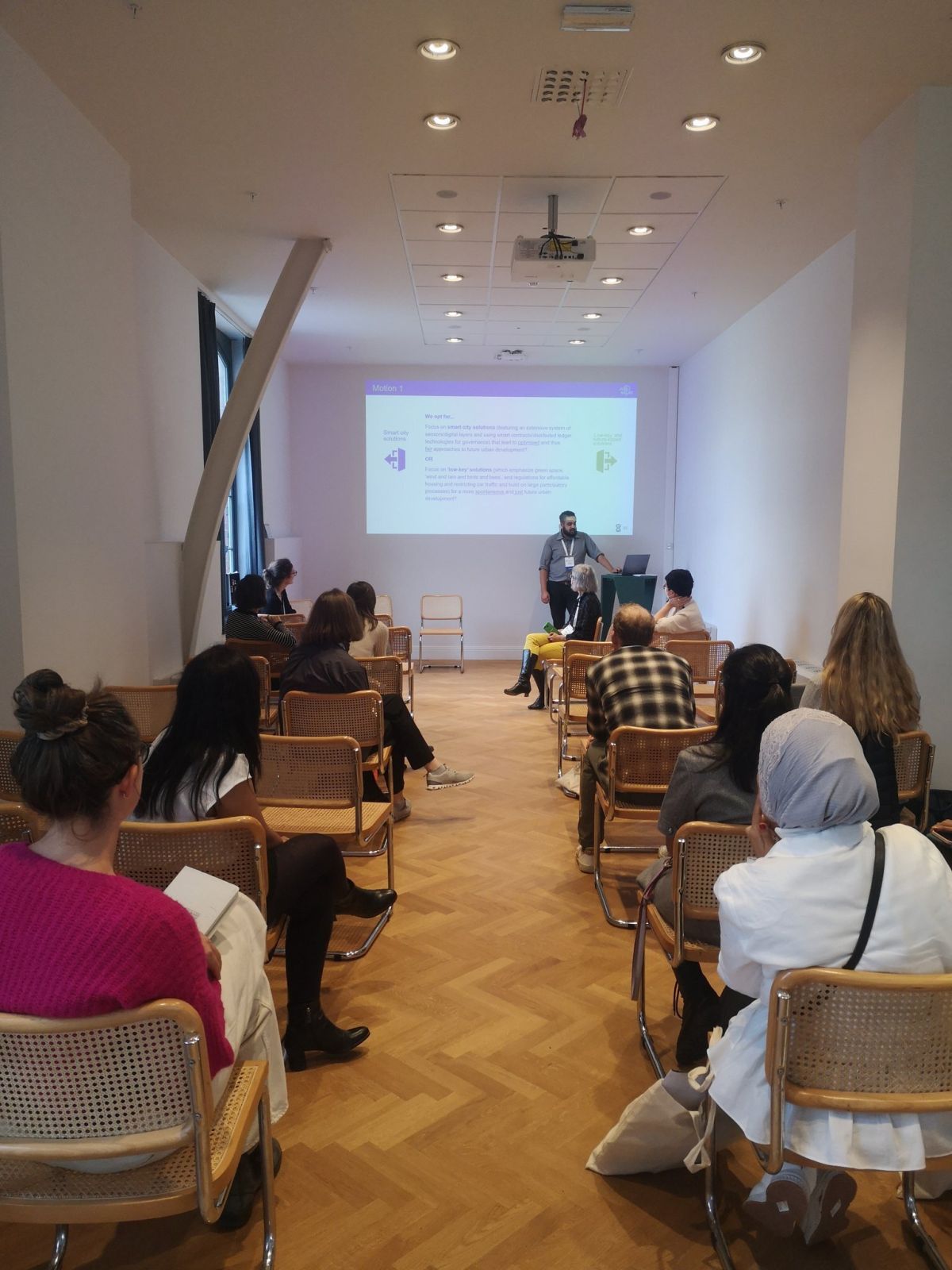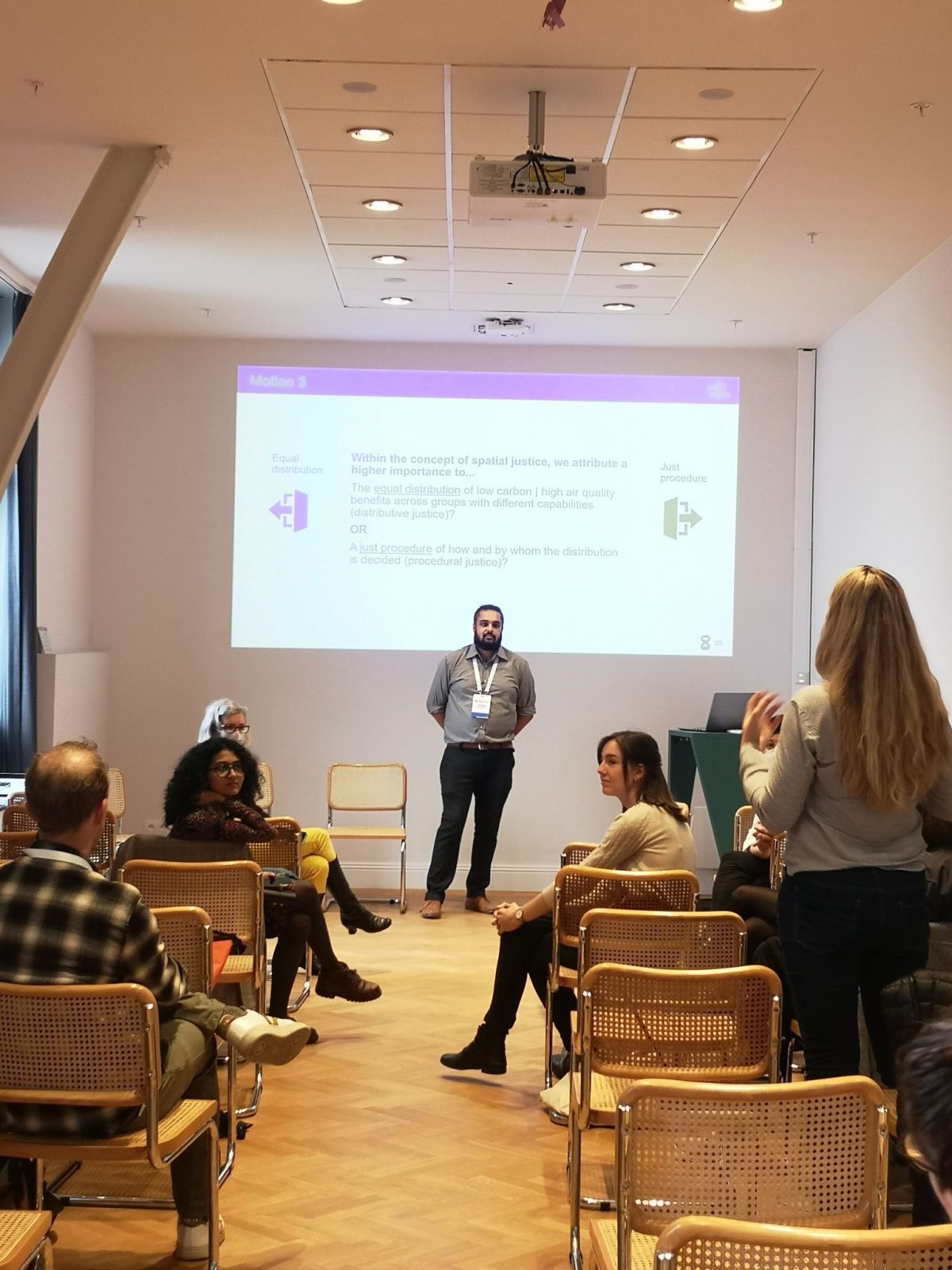“Justice for What? Ecological (space) Justice of NbS in Cities” Our Special Session at the 58th ISOCARP World Planning Congress 2022 - in Brussels!
On October 5, 2022, the JUSTNature project team led by Sonja Gantioler and Martina van Lierop presented the project to the community of urban planners, policymakers and people from fields of urban development at the 58th ISOCARP World Planning Congress 2022 in Brussels with ISOCARP supporting teams.
The special session named “Justice for What? Ecological (space) Justice of NbS in Cities” was inspired by the recent step of the city of Toronto to ditch the smart cities for low-key and nature-based solutions. The project kicked off a debate on whether or how to avoid the NbS movement being hijacked by the same urban planning system that has been pushing for the smart city. The debate used House of Commons techniques, which will see participants divided into two groups representing opposing aspects. The session took place in the Machine room at Maison de la Poste, where chairs were prepared into two rolls for participants to allocate their beliefs.




